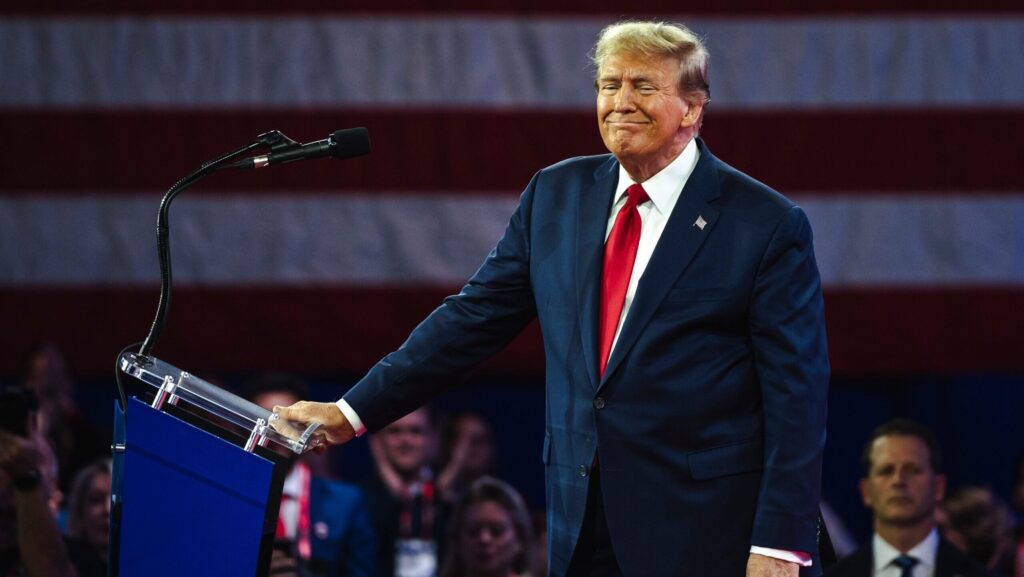WASHINGTON — President-elect Donald Trump and Vice President-elect JD Vance are poised to significantly impact key trucking policies that could have major financial consequences, particularly regarding truck automation and electric vehicles.
While there is an extensive list of regulations and legislation pending that affect the trucking industry, here are the Top 10 significant policies that the Trump-Vance administration, together with Congress, is expected to address over the next four years, listed without any particular order.
1. Standards for Internal Combustion Engines
Trump-Vance: They are likely to adjust standards to levels deemed technologically achievable for internal combustion engines, extend compliance timelines, and explore alternative solutions for meeting emissions targets, such as renewable diesel.
Cost implications: New diesel-powered electric tractors can cost about $180,000, whereas a new electric tractor can be up to $450,000. Additionally, current EV batteries can weigh between 12,000-16,000 pounds, impacting cargo capacity due to highway weight limits.
2. Speed Limiters
Biden-Harris: The Federal Motor Carrier Safety Administration has a proposed rule that is expected in January 2025.
Trump-Vance: There is a possibility that this rule may be delayed indefinitely, as Vance supports legislation that bans speed-limiting devices in trucks.
Cost implications: This rule has backing from large carriers and their associations, which want to formalize a technology already used in many larger fleets. However, owner-operators argue that it poses safety risks and would create an uneven playing field against larger carriers.
3. Autonomous Trucks
Biden-Harris: Plans included proposing a regulation in December addressing high levels (Level 4 and Level 5) of truck automation.
Trump-Vance: They are expected to adopt a less regulatory and more industry-led approach to truck automation compared to the previous Biden-Harris framework, encouraging more input from autonomous vehicle technology developers.
Cost implications: This approach may lessen the burdens on the trucking sector, unlike the Biden-Harris regulation, which would have introduced higher costs for training and certification for enhanced inspections.
4. Trade Tariffs
Biden-Harris: The current tariffs on certain imports from China would be maintained while increasing tariffs on green energy products, steel, and aluminum.
Trump-Vance: They plan to implement a 60% tariff on all imports from China, along with a baseline tariff of 10%-20% on all U.S. imports.
Cost implications: This approach could lead to positive domestic economic growth, potentially increasing the demand for trucking services. Freight lobbying interests may also gain influence in negotiating tariff exemptions.
5. Corporate Taxes
Biden-Harris: A tax increase from the current 21% to as high as 28% has been considered.
Trump-Vance: They propose reducing the tax rate to as low as 15% for companies that produce goods in the U.S., with a possible repeal of the 12% federal excise tax (FET) on heavy trucks and trailers.
Cost implications: Tax policies favoring U.S. products could lead to immediate positive effects on freight transport, notably from manufacturing sectors like automotive and household goods. Eliminating the FET may encourage investments in cleaner vehicles.
6. Tort Reform
Biden-Harris: Supported labor law reforms that expanded violations and damages in truck accident lawsuits.
Trump-Vance: Likely to support measures that would channel such lawsuits into the federal court system.
Cost implications: This could provide relief against “nuclear verdicts” (awards exceeding $10 million) faced by trucking companies, aligning with tort reforms that have gained traction at the state level.
7. Truck Parking
Biden-Harris: Expanded funding was provided through the Infrastructure, Investment & Jobs Act (IIJA).
Trump-Vance: Vance co-sponsored the Truck Parking Safety Improvement Act aimed at enhancing truck parking capacity, which has not yet been passed.
Cost implications: This proposed legislation would allocate $755 million in grants over three years specifically for the expansion of truck parking facilities.
Disclosure: JD Vance is an investor in FreightWaves SONAR through the Rise of the Rest fund.


